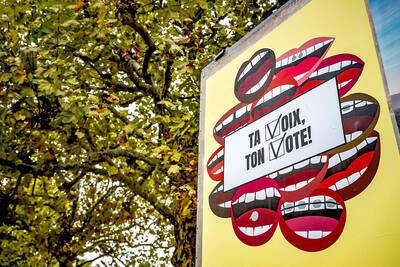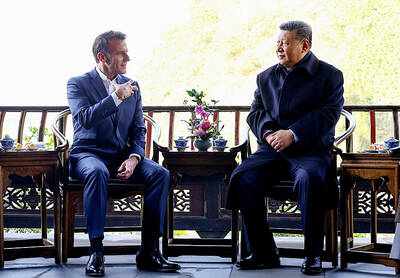The books of two award-winning New Zealand authors have been disqualified from consideration for the nation’s top literature prize because artificial intelligence (AI) was used in the creation of their cover designs.
Stephanie Johnson’s collection of short stories Obligate Carnivore and Elizabeth Smither’s collection of novellas Angel Train were submitted to the 2026 Ockham New Zealand Book Awards’ NZ$65,000 (US$36,825) last month, but were ruled out of the competition the following month in light of new guidelines around AI use.
Quentin Wilson, the publisher of both books, said the awards committee amended the guidelines in August, by which time the covers of every book submitted for the awards would have already been designed.
“It was, therefore, far too late for any publisher to have taken this clause into account in their design briefs,” Wilson told the Guardian.
“It is obviously heartbreaking that two wonderful pieces of fiction by highly respected authors have become embroiled in this issue, even though it has absolutely nothing to do with their writing,” he said.
Wilson said it was also upsetting for the production and design team, who had worked hard on the books.
Johnson was sympathetic to the award organizers, saying she, too, is deeply concerned about the use of AI in creative fields, but was disappointed with the decision.
“I’d be lying if I said I wasn’t sad about it,” she told the Guardian. “It’s my 22nd book, and it is my fourth collection of short stories. These stories … were written over a sort of 20 year period, so for me, it’s quite an important book.”
Johnson said authors typically have very little to do with the design of their books, and she had no idea AI had been used to create her cover, which features a cat with human teeth.
“I just thought it was a photograph of a real cat and the teeth had been superimposed, but apparently it wasn’t,” Johnson said, adding that unlike younger generations who are adept at identifying AI, she had trouble distinguishing images created with the technology.
Johnson worried people would now assume she had used AI to write her book, which she “most certainly did not.”
“Instead of talking about my book … and what the inspiration was, we are talking about bloody AI, which I hate,” she said.
In a statement, Smither said the designers spent hours working on the cover of her book, which features a steam train and an angel “half-obscured in the smoke,” inspired by artist Marc Chagall’s figures.
“It is them I am most concerned about: that their meticulous work … is being disrespected,” Smither said.
Both Smither and Johnson have previously judged categories of the Ockham awards, and both said the covers were given very little consideration.
“The contents and the close reading were everything,” Smither said.
Nicola Legat, the chair of the book awards trust, which administers the Ockham awards, said the trust takes a “firm stance on the use of AI in books.”
“The trust does not take lightly a decision that prevents the latest works of two of New Zealand’s most esteemed writers from being considered for the 2026 award,” Legat said.
“However, the criteria apply to all entrants, regardless of their mana [status], and must be consistently applied to all.”
The decision to amend the criteria around AI was spurred by a desire to support creative and copyright interests of the country’s writers and illustrators, she said.
“As AI evolves, there may well be a need for the trust to revisit and develop the criteria further,” she said.
Wilson said publishers and authors regularly use Grammarly and Photoshop, which draw on AI, and the situation highlighted an urgent need for carefully developed guidelines.
“As an industry, we must work together to ensure that this situation does not happen again.”

PARLIAMENT CHAOS: Police forcibly removed Brazilian Deputy Glauber Braga after he called the legislation part of a ‘coup offensive’ and occupied the speaker’s chair Brazil’s lower house of Congress early yesterday approved a bill that could slash former Brazilian president Jair Bolsonaro’s prison sentence for plotting a coup, after efforts by a lawmaker to disrupt the proceedings sparked chaos in parliament. Bolsonaro has been serving a 27-year term since last month after his conviction for a scheme to stop Brazilian President Luiz Inacio Lula da Silva from taking office after the 2022 election. Lawmakers had been discussing a bill that would significantly reduce sentences for several crimes, including attempting a coup d’etat — opening up the prospect that Bolsonaro, 70, could have his sentence cut to

A plan by Switzerland’s right-wing People’s Party to cap the population at 10 million has the backing of almost half the country, according to a poll before an expected vote next year. The party, which has long campaigned against immigration, argues that too-fast population growth is overwhelming housing, transport and public services. The level of support comes despite the government urging voters to reject it, warning that strict curbs would damage the economy and prosperity, as Swiss companies depend on foreign workers. The poll by newspaper group Tamedia/20 Minuten and released yesterday showed that 48 percent of the population plan to vote

A powerful magnitude 7.6 earthquake shook Japan’s northeast region late on Monday, prompting tsunami warnings and orders for residents to evacuate. A tsunami as high as three metres (10 feet) could hit Japan’s northeastern coast after an earthquake with an estimated magnitude of 7.6 occurred offshore at 11:15 p.m. (1415 GMT), the Japan Meteorological Agency (JMA) said. Tsunami warnings were issued for the prefectures of Hokkaido, Aomori and Iwate, and a tsunami of 40cm had been observed at Aomori’s Mutsu Ogawara and Hokkaido’s Urakawa ports before midnight, JMA said. The epicentre of the quake was 80 km (50 miles) off the coast of

RELAXED: After talks on Ukraine and trade, the French president met with students while his wife visited pandas, after the pair parted ways with their Chinese counterparts French President Emmanuel Macron concluded his fourth state visit to China yesterday in Chengdu, striking a more relaxed note after tough discussions on Ukraine and trade with Chinese President Xi Jinping (習近平) a day earlier. Far from the imposing Great Hall of the People in Beijing where the two leaders held talks, Xi and China’s first lady, Peng Liyuan (彭麗媛), showed Macron and his wife Brigitte around the centuries-old Dujiangyan Dam, a World Heritage Site set against the mountainous landscape of Sichuan Province. Macron was told through an interpreter about the ancient irrigation system, which dates back to the third century